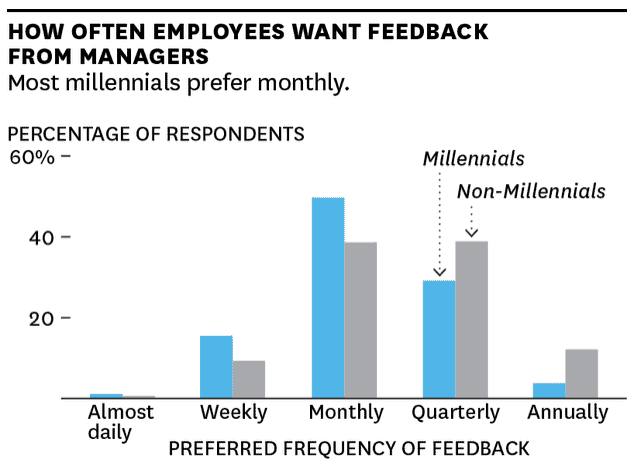Welcome to the 8th edition of "Ask Lighthouse”, our weekly format that answers your questions about leadership and management. Each week, Jason Evanish, the CEO and founder of Lighthouse, and other leaders will share their advice for overcoming your biggest challenges based on their experience and lessons learned helping others.
In today's post, we're focusing on how to keep employees from quitting when they have a better offer on the table.
The goal is to provide you with the nuance and detail that you can't find in our long-form posts that try to be more generally applicable.
Want to have your biggest, burning management question answered next? You can send in your questions for next week here: Submit Your Questions for Next Week Here
This Week's Ask Lighthouse: Preventing Employee Turnover
Question: "One of my best employees is interviewing at a company who can pay them significantly more than we can. How can I convince them to stay?”
As Jason Lemkin writes, "Once they tell you they have another offer … they're already out the door.” But that doesn't mean you can't save the people still on your team, even if you think they might be interviewing.
Now, specifically when your concern is compensation or monetary, realize money isn't actually that great of a motivator.
As Dan Pink writes in his book, Drive, it can even be very destructive:
- It can lead to unethical behavior as people are willing to act against the interests of others to achieve their reward.
- It can cause your team to start expecting rewards for every similar task you give them in the future.
- It can discourage people from taking risks to ensure safely reaching the goal - at the cost of missing potentially greater gains.
A bonus and a carrot & stick approach won't stop your team member from leaving on its own. However, the good thing is, it's unlikely to work for your competitor as well.
Here are three ideas on how to retain your team beyond a financial incentive:

1) Ensure they're making progress
It sounds very obvious, yet it's so easy for us to forget: We're motivated by making progress.
For humans, progress carries a lot of significance at every level. As a society, we're always striving to do better. And individually - whether on a personal or professional level - we are driven by taking steps forward and feeling like we're making a difference.
In her research reported in the Harvard Business Review, professor Teresa Amabile found that progress was the most important thing in ensuring happiness at work consistently:
Helping your team feel positive progress can stop them from burning out and having second thoughts about their employment at your company.
Here are three ways you can ensure they're not stagnating in their careers:
- Remove Blockers: As a manager, make sure your team isn't encountering any roadblocks. Help them deal with blockers as much as you can, and if there's nothing you can do about it, consider if they can make progress doing something else while until their situation gets resolved.
- Empower Them: One of the best ways to ensure you're not impeding your team's progress is to be more hands-off. Work with them to define the desired outcomes and then let them decide how to go about achieving them. Knowing when to be hands off and how much to check in with them can be difficult at times - you can learn how to do it using the concept of Task Relevant Maturity here.
- Take No One for Granted: The importance of progress affects everyone, including your best performers. No matter how used you are to their high effort level, make sure to talk to them about their progress often and let them know how much you appreciate them.
Underestimating the value of progress for everyone on your team is a surefire way to get them thinking about switching companies. By addressing progress in your 1:1s regularly, you'll be giving your people a reason to consider staying put - even when they have a better offer on the table.
You can check out the further reading section below for more reasons why your team members will consider leaving and what you can change to stop that from happening:
- “Why Are My Employees Quitting?”: 5 Ways To Stop An Employee Turnover Wave
- How Managers Can Cause Low Employee Morale
- Learned Helplessness: How it Applies to Employee Engagement at Work
- How to Handle When Your Employees Ask for a Raise.
2) Praise them
The best way to make your team feel appreciated has little to do with financial incentives. By praising them regularly, you'll be making them feel like they belong at your company and giving them a motive to stay. As Mary Kay Cosmetics founder, Mary Kay Ash puts it:
If you've ever given genuine, specific praise to someone for their work, you know exactly what kind of an impact it can have.
And this isn't just our opinion - multiple studies have backed up its importance. According to Gallup, regular praise has a significant effect on lowering turnover:
"[Those answering "strongly agree to] "In the last seven days, I have received recognition or praise for doing good work” is responsible for a 10% to 20% difference in revenue and productivity.”
And even more notably:
"Employees who report that they're not adequately recognized at work are three times more likely to say they'll quit in the next year.”
Giving praise costs you nothing and makes a big difference for your team members, so make sure they know you value their work! Take the time to review their work semi-regularly and call out things you like and want to see more of. Also - remember to thank your unsung heroes who do the unglamorous work consistently; they need appreciation too!
Here are some posts you can use to become great at giving praise:
- How to be More Positive at Work and Give More Praise to Your Team: The Ultimate Workplace Praise Guide
- 5 Ways to Give Effective Praise to Motivate Your Team
- How to praise team members
3) Help them grow in their careers
Going back to our first point, we talked about the importance of feeling progress on a daily or weekly basis. No one wants to work on the project that never ends. Yet, interesting work they make progress on is only part of the progress they want.
If you truly want to keep your team from accepting better offers, then supporting their career growth consistently is one of the best ways to do it.
Multiple studies in recent years have shown that the most important perk or benefit employees want at work is growth.
It's been confirmed in PwC's study of what attracts Millennials to new jobs:
And as this article by Forbes starkly points out:
"93% of employees would stay at their job longer if the organization invested in their careers.”
With that in mind, here's what you can do to support your people's growth for the long-term:
Talk about it regularly in your 1 on 1s with them
Bringing up career growth once a year at review time is not enough. It's frustrating and limits what your team members can do. What if they changed their mind 11 months ago, or you decided based on work they could have fixed months ago that they're not ready to be promoted?
To fix this, you need to regularly talk about their careers. We know how busy managers are, so you're likely not going to have the luxury of dedicating an additional meeting to that conversation.
What you can do instead is take advantage of the meeting you already have scheduled with them: your 1:1s.
To make the most out of these meetings, put discussions about your people's growth on the agenda so you can revisit them at least once a month. This makes their progress smaller and more incremental, which is essential for helping them make adjustments as they learn more about what they like and do not as well as your coaching.
Unless you have these conversations with your people, the longer they're in a role, the more likely they will be to look for another job that provides the next step in their career growth.
That's why we've compiled a list of resources to help you start having them:
- Learn how to spark career conversations in a few different ways: How to help your team achieve their goals.
- Offering help when your team member can't answer "What are your career goals?”
When a valued employee resigns, it can catch you off guard and leave you uncertain about the best way to proceed. How you respond in those crucial moments can have a big impact on your team's morale and the departing employee's lasting perception of your company. That's why mastering how to respond to employee resignation is so important.
What are Your Biggest Leadership Challenges? Let us Know!
At Lighthouse, we always want to give you the most actionable ways to improve.
What are your biggest leadership challenges right now? Let us know by submitting your question for next week here.
We'll anonymize anything needed to respect your privacy, and you'll get an answer to your biggest challenge right now.





